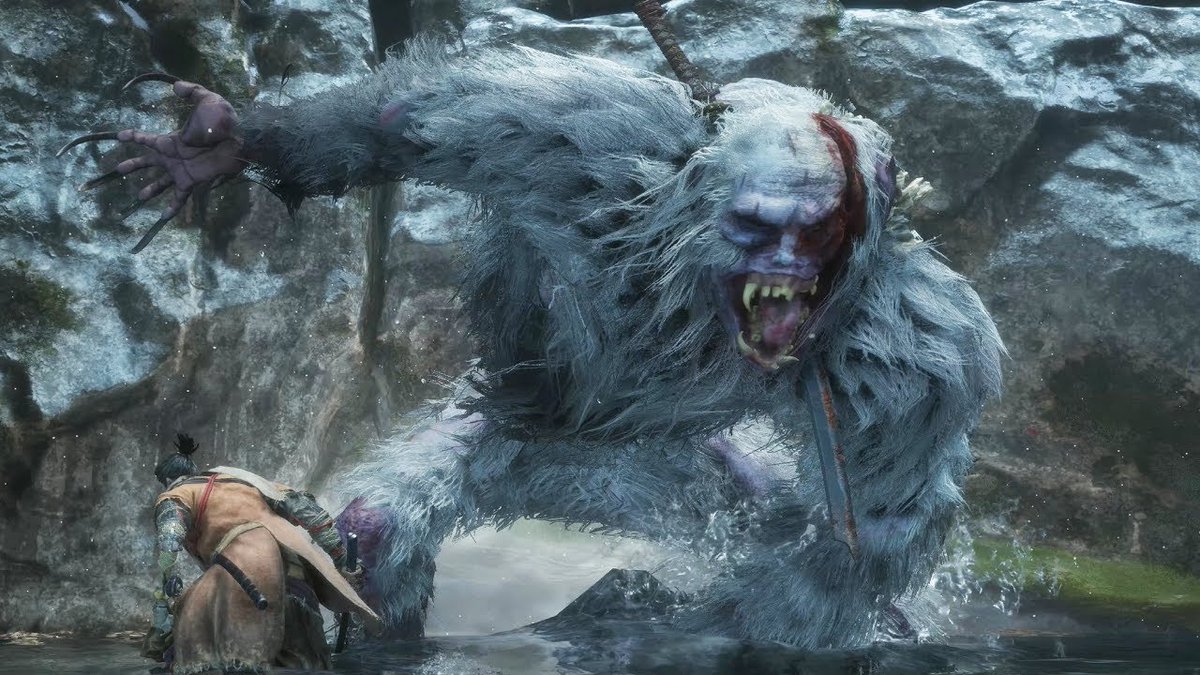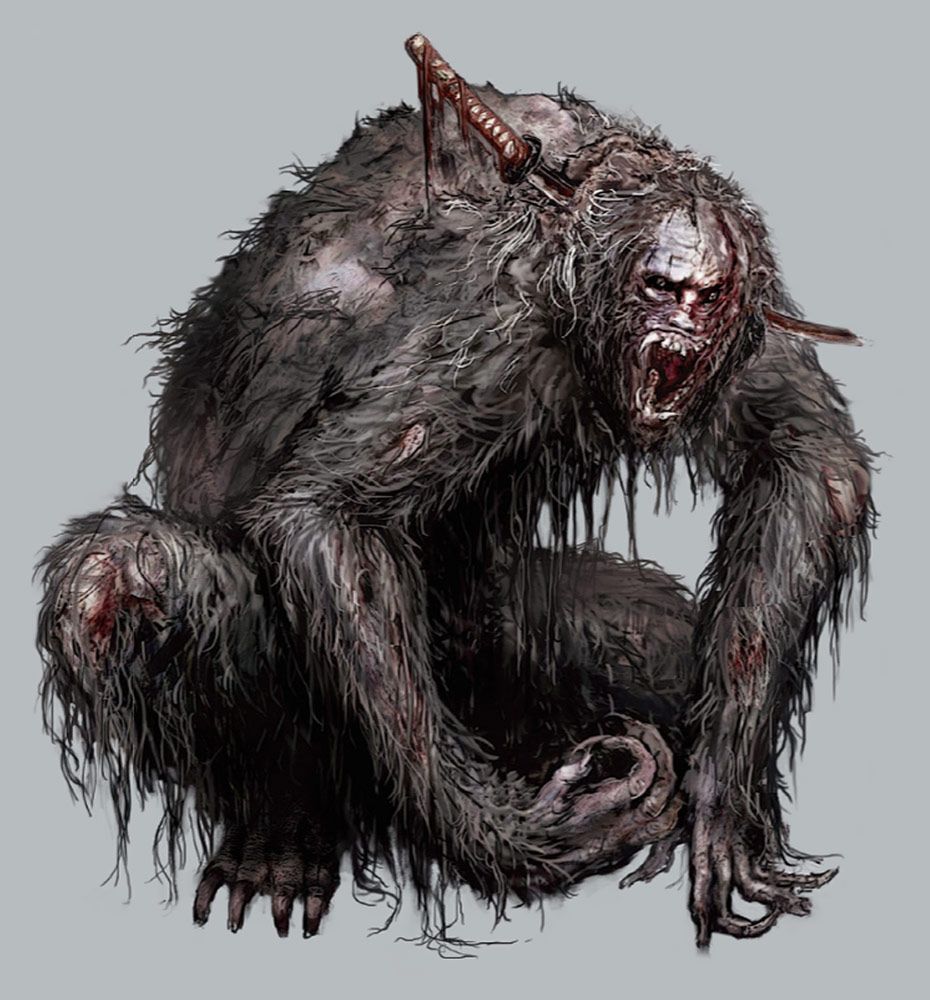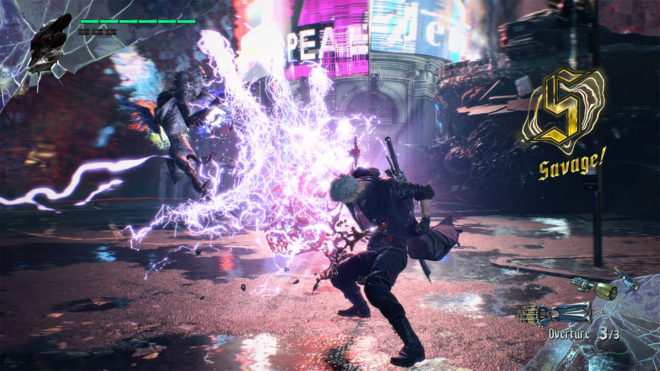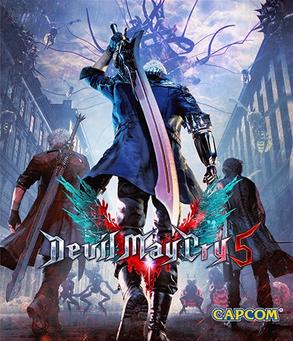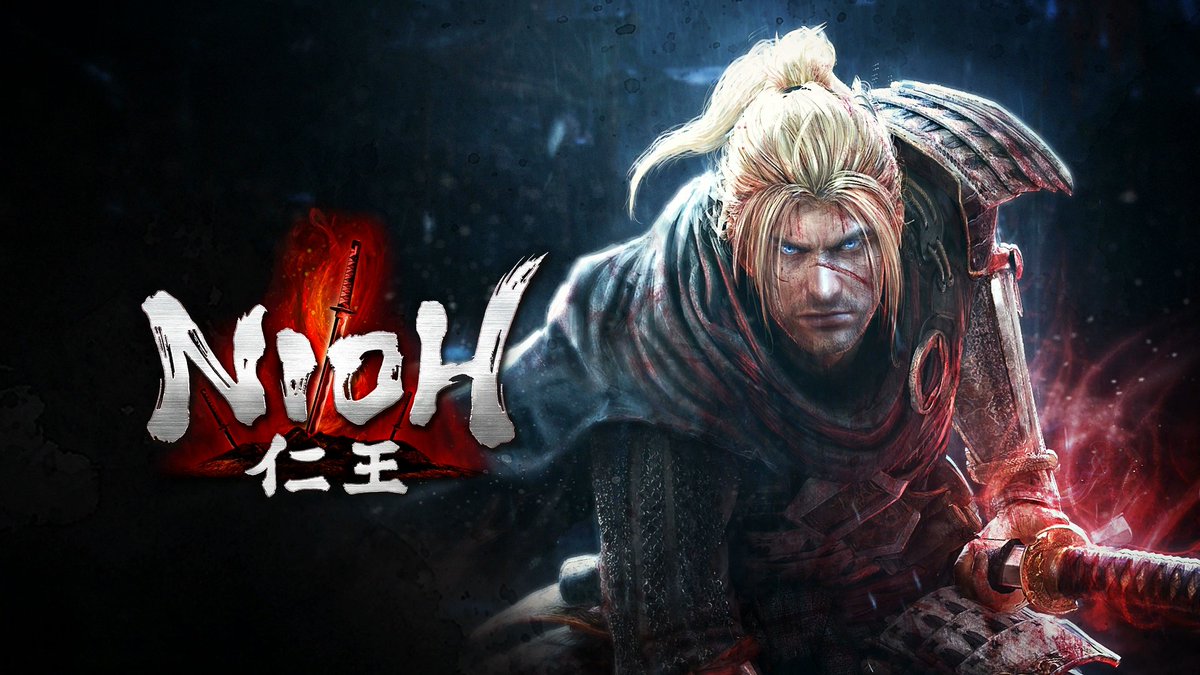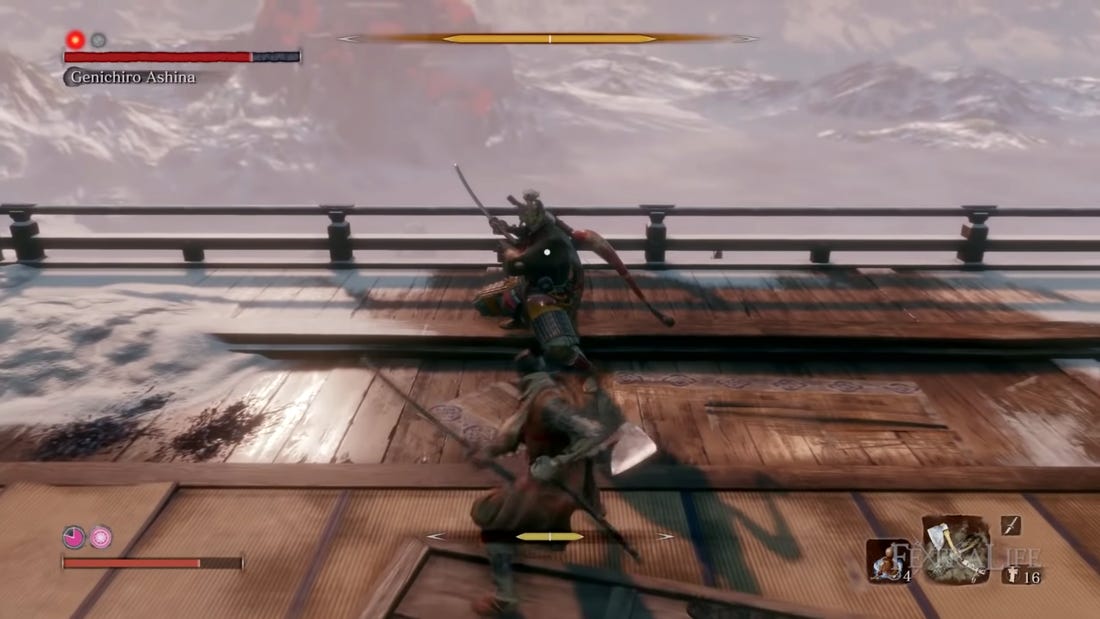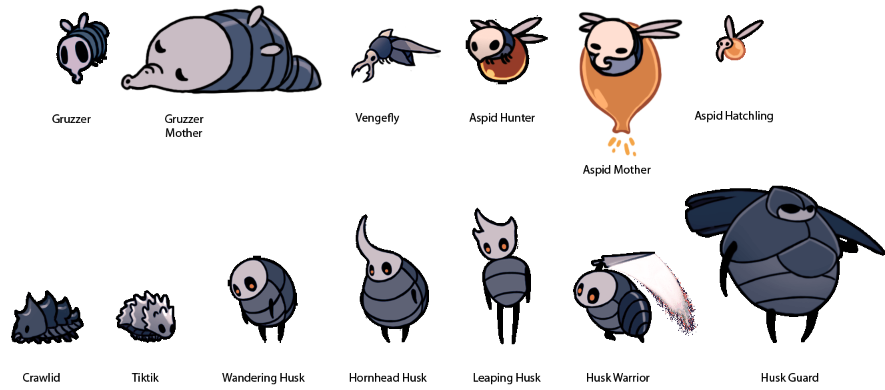
What does the act of getting hit convey about the melee combat system? How the player controls/reacts when taking damage contributes to the combat difficulty. Let’s look at two different 3rd person melee combat games, Sekiro and Devil May Cry 5. #gamedesign #combatdesign 🧵 


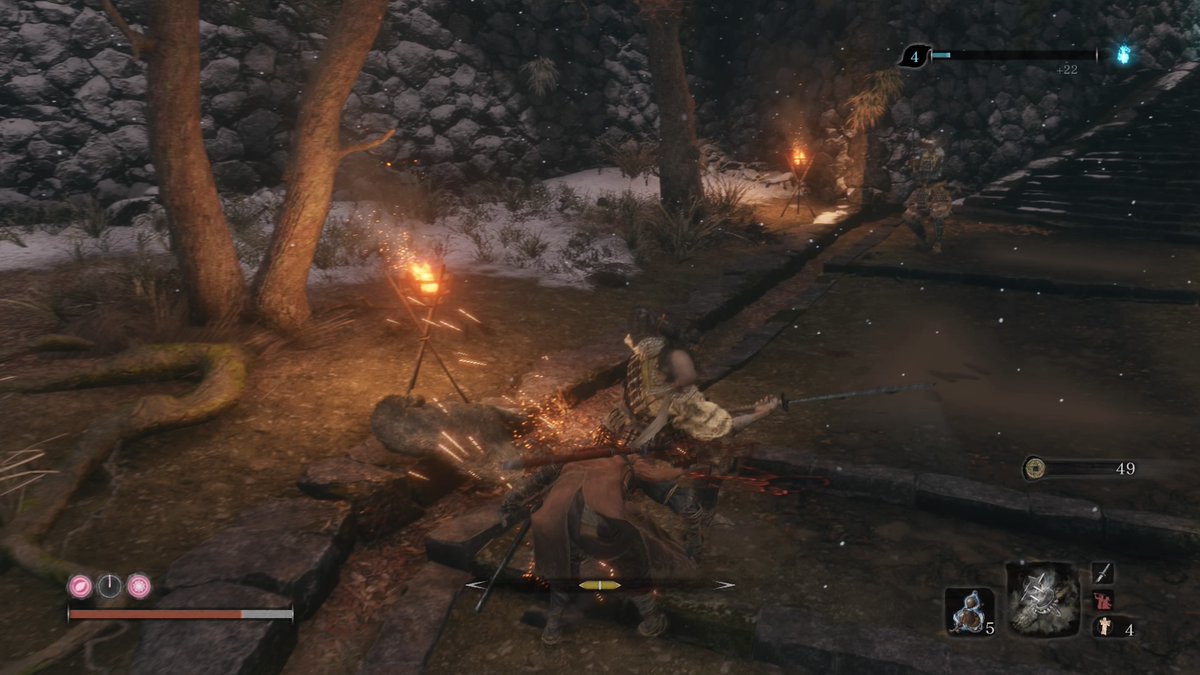
Generally, in melee combat games, taking damage disables the player’s input for a small amount of time and becomes vulnerable to follow up attacks. If the player gets hit consecutively without being able to escape (dodge/block) this is usually referred to as STUN LOCKED. 1/4
In DMC5, the reaction system has safeguards to prevent Nero from getting stun locked. If hit during a reaction, the 2nd hit will not trigger a reaction (only damage). If hit multiple times within a short time, he’ll play an EJECT reaction that prevents follow up attacks. 2/4
In Sekiro, stun lock is a teaching method to tell the player they have reached a bad state. Enemies can land more than 1 hit in a very small time frame. The player can still mash evade to escape extended stun locks, ensuring the game is fair but keeping TENSION high. 3/4
Each respective reaction system reinforces the overall TONE of the combat. In DMC5, combat is designed around the player experimenting/creating ways to stun lock enemies. In Sekiro, the player has many overpowering tools to escape hits so getting hit is dangerous. 4/4
HIT DIRECTION - Nero instantly faces the attacker while Sekiro stays in the direction he was facing when hit. DMC’s player hit reaction rules feed into the overall goals of the combat system which encourages a hyper offensive play style. 1/2
Even when taking damage against minor/moderate attacks, the player is instantly in a position to attack. In Sekiro, hit reactions are positional and Wolf maintains his facing when hit. This makes it easier for the player to sprint or evade away from danger. 2/2
AIR REACTIONS - Sekiro’s basic air reaction doesn’t translate the player away, making it more dangerous to take damage in the air. The player will land right next to the attacking enemy and be in range for follow up attacks. Stronger enemy attacks can send Wolf flying back. 1/3
Large displacement reactions actually help the player from getting stun locked in addition to selling the strength of the enemy attack. In the video, the player must quick recover in order to exit this reaction faster - all other inputs are disabled during this time. 2/3
In DMC, Nero is usually ejected away from enemy's follow up attacks in a stylish and positive position compared to Sekiro. This plays into Nero’s, and the combat system’s, personality/goals of having more opportunities to OVERPOWER enemies. 3/3
• • •
Missing some Tweet in this thread? You can try to
force a refresh


